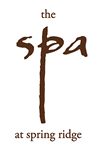Acne Scar Treatments for Every Skin Type: What Really Works
Posted in Acne and Acne Scarring
Acne breakouts may fade, but the scars they leave behind can linger for years. Fortunately, modern acne scar treatments offer real hope—no matter your skin type. From advanced laser treatment for acne scars to gentle exfoliation methods, knowing which option is right for you is the key to smoother, healthier skin.
In this blog, we’ll break down:
- What acne scar treatment really means
- Different skin types
- Common and effective treatments for acne scars
- The best acne scar treatment for each skin type
What Is Acne Scar Treatment?

Acne scar treatment refers to the use of medical or cosmetic procedures to reduce or remove scarring left behind after acne heals. These scars form due to inflammation, tissue damage, or improper healing. Effective acne scarring treatment options range from topical creams to invasive surgical procedures.
Some patients look for quick, dramatic changes (like acne scar laser treatment), while others prefer slow, gentle improvements through acne scar treatment products. The good news? There’s something that works for every skin type and scar severity.
Understanding Skin Types
Before deciding on a treatment for acne scars, it’s essential to identify your skin type, as this affects how your skin will respond to treatments.
1. Oily Skin
- Enlarged pores, shiny appearance
- Prone to breakouts and post-acne scarring
2. Dry Skin
- Flaky, tight, or rough
- May react poorly to harsh treatments
3. Combination Skin
- Oily in T-zone, dry on cheeks
- Needs balanced care
4. Sensitive Skin
- Easily irritated by chemicals or heat
- Requires gentle, non-invasive care
5. Normal Skin
- Well-balanced
- Rarely breaks out, tolerates most treatments
Most Common Acne Scar Treatments
Here are the most widely used and trusted acne scar treatments, including both in-office procedures and at-home options.
1. Laser Treatment for Acne Scars
Laser acne scar removal treatment is one of the top choices for deep or stubborn scarring. It works by targeting scar tissue and encouraging skin regeneration.
Popular Types:
· Ablative Lasers (e.g., CO2 and Erbium YAG): Remove outer skin layers
· Non-ablative Lasers: Stimulate collagen without removing skin
Benefits:
· Smooths texture
· Brightens pigmentation
· Stimulates natural healing
Many clinics showcase laser treatment for acne scars before and after photos to show realistic results. However, the laser acne scar removal treatment price can vary from $500 to $3,000 per session depending on technology and provider.
2. Microneedling
Microneedling involves tiny needles that puncture the skin to stimulate collagen and elastin. It’s effective for rolling scars and post-inflammatory pigmentation.
Best For:
· Mild to moderate scarring
· All skin types, especially oily and combination
Combine with PRP (Platelet-Rich Plasma) for enhanced results.
3. Chemical Peels
Chemical peels use acids to exfoliate the skin and fade discoloration. They help with surface-level acne scarring treatment and improve texture.
Best Suited For:
· Superficial scars
· Normal to oily skin
4. Microdermabrasion
A non-invasive exfoliation procedure that removes dead skin cells and improves skin tone and texture.
Good For:
· Mild acne scars
· Dry, dull, or sensitive skin
Microdermabrasion isn’t as effective for deep scars but works well for skin renewal and brightness.
5. Surgical Techniques for Acne Scars
Surgical methods are used for severe or pitted scarring. These include:
· Subcision: Breaks the fibrous bands beneath rolling scars
· Punch Excision: Removes deep icepick scars
· Punch Grafting: Replaces the scar with healthy skin
These are often combined with acne scar laser treatment for better outcomes.
6. Topical Acne Scar Treatment Products
For minor scarring, creams and serums are ideal. Look for ingredients like:
· Retinoids (stimulate cell turnover)
· Vitamin C (brightens pigmentation)
· Salicylic Acid (exfoliates)
· Niacinamide (soothes and fades discoloration)
They’re affordable, accessible, and can be used in combination with clinical procedures.
What You Should Know Before Starting Any Acne Scar Treatment
Before you dive into any acne scar treatment, it’s important to understand a few key factors that can impact your results. These insights will help you set realistic expectations and choose treatments that are not only effective—but also safe for your skin type and goals.
· Combination Therapy Delivers Better Results: For many, combining treatments like microneedling with PRP or laser resurfacing plus topicals yields superior results.
· Downtime Matters: Laser resurfacing and surgery may require recovery time, while peels and microdermabrasion typically don’t.
· Be Aware of Costs: The laser acne scar removal treatment price can be high. Always ask for package rates or financing options.
· Consistency Is Key: Whether you’re using acne scar treatment products or undergoing laser sessions, patience and consistency are crucial.
· Choose a Trusted Provider: When searching for an acne scar treatment near me, make sure the clinic or dermatologist is certified, experienced, and transparent about expected outcomes.
Which Acne Scar Treatment Is Best for Each Skin Type?
Your skin type plays a critical role in how it responds to treatments. Choosing the wrong method can cause irritation, pigmentation, or even worsen scarring. Below is a detailed guide to help you understand the best acne scar treatment options for each skin type, along with tips to ensure maximum safety and results.
Acne Scar Treatments for Oily Skin
Recommended Treatments:
- Microneedling
- Laser resurfacing (e.g., Fractional CO2 laser)
- Chemical peels (salicylic acid or glycolic acid-based)
- Topical retinoids and salicylic acid creams
Why it works:
Oily skin produces excess sebum, which often leads to clogged pores and deeper acne breakouts—resulting in more noticeable scars. Treatments like microneedling and acne scar laser treatment help stimulate collagen and improve skin texture, while chemical peels help control oil and prevent new breakouts.
Tips:
- Avoid heavy creams or occlusive ointments post-treatment
- Use oil-free, non-comedogenic sunscreens to protect healing skin
Acne Scar Treatments for Dry Skin
Recommended Treatments:
- Microdermabrasion
- Gentle laser treatments (e.g., Erbium YAG laser)
- Hydrating chemical peels (like lactic acid)
- Niacinamide-based serums or vitamin C creams
Why it works:
Dry skin tends to be sensitive and may crack or become inflamed easily. This limits the use of aggressive treatments. Milder resurfacing options like microdermabrasion or low-intensity laser therapies provide exfoliation and scar smoothing without excessive irritation. Hydrating serums support skin repair.
Tips:
- Always hydrate your skin before and after treatment
- Avoid alcohol-based products which can worsen dryness
Acne Scar Treatments for Combination Skin
Recommended Treatments:
- Fractional laser treatment
- Customized chemical peels
- Microneedling with PRP
- Topical retinoids for spot correction
Why it works:
Combination skin is tricky—it’s oily in some areas (usually the T-zone) and dry in others. Treatments need to balance both aspects without triggering breakouts or flaking. Fractional lasers and microneedling with PRP allow controlled collagen stimulation, while chemical peels can be tailored to different zones.
Tips:
- Spot-treat areas with specific concerns (use acids on oily zones, moisturizers on dry patches)
- Alternate between exfoliating and hydrating treatments
Acne Scar Treatments for Sensitive Skin
Recommended Treatments:
- Low-energy Erbium laser treatments
- Subcision (for deep scars)
- Azelaic acid or niacinamide-based topical products
- Non-acidic, fragrance-free scar gels
Why it works:
Sensitive skin is prone to redness, irritation, and allergic reactions. Aggressive acne and scars laser treatment or harsh chemical peels can cause more harm than good. Instead, gentle lasers and topical anti-inflammatories help reduce the appearance of scars without compromising the skin barrier.
Tips:
- Always do a patch test before using a new product
- Avoid hot environments or strenuous activity immediately after treatments
Acne Scar Treatments for Normal Skin
Recommended Treatments:
- Any treatment (based on scar type): laser resurfacing, microneedling, peels
- Combination therapy: laser + topical retinoids
- Vitamin C or glycolic acid products for maintenance
Why it works:
Normal skin is well-balanced and responds positively to most professional treatments. You can select your acne scar treatment based on the type and depth of scarring rather than being restricted by sensitivity or oiliness.
Tips:
- Maintain your skin health post-treatment with antioxidant-rich products
- Stick to a consistent regimen for long-term improvement
Conclusion: Choose What Works for Your Skin
Whether you’re dealing with light pigmentation or deep pitted scars, there’s an acne scar treatment that can help you feel more confident in your skin. From acne and scars laser treatment to acne scar treatment products, the key is understanding your skin type and the kind of scars you’re treating.
If you’re looking for dramatic change, consider laser treatment for acne scars—just be sure to check laser treatment for acne scars before and after photos and reviews before committing. Prefer gentle or DIY care? Start with proven treatments for acne scars like retinoid creams or microdermabrasion.
Your journey to scar-free skin starts with knowledge—and the right treatment plan tailored just for you.
Frequently Asked Questions (FAQs)
Q1: What is the most effective treatment for acne scars?
The most effective treatment depends on your scar type and skin. Laser resurfacing and microneedling are top choices for deep scars, while chemical peels and retinoids work well for surface scars. A dermatologist can customize the best treatment plan based on your individual skin needs.
Q2: Can acne scars be permanently removed?
Some acne scars can be permanently reduced or removed with professional treatments like laser therapy, subcision, or microneedling. However, results vary by skin type and scar severity. Deep scars may improve significantly but not disappear completely. Early treatment and consistency improve long-term outcomes.
Q3: Is laser treatment safe for all skin types?
Laser treatments are generally safe when performed by experienced professionals. However, people with darker or sensitive skin may be at higher risk for hyperpigmentation. Gentler options like Erbium lasers or non-ablative treatments are often recommended. Always consult a dermatologist before undergoing laser acne scar treatment.
Q4: How long does it take to see results from acne scar treatments?
Results depend on the treatment type. Topical products may take 8–12 weeks, while clinical treatments like microneedling or laser therapy often show visible results after 2–3 sessions. Complete results may take several months, especially for deep scars or combined treatment plans.
Q5: Are home remedies effective for acne scar treatment?
Home remedies may help with mild pigmentation but are rarely effective for deep or textured scars. Natural ingredients like aloe vera, honey, or vitamin C can support skin healing, but clinical treatments are more reliable for noticeable results. Use home care as a supplement, not a solution.



